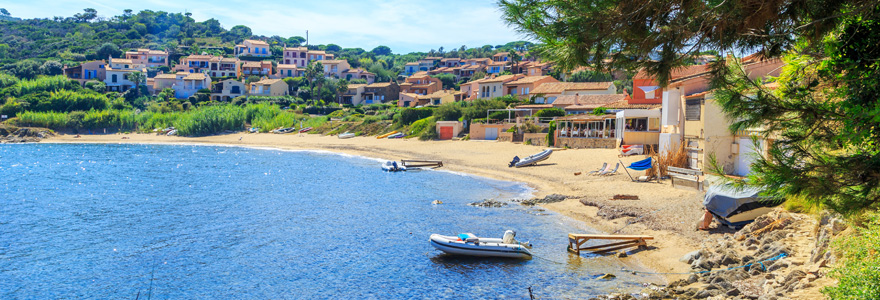
From the appeal of St. Tropez to the current market challenges, you'll get a comprehensive look at everything you need to know about the real estate market of St. Tropez. So, fasten your seatbelts, and let's take a journey beyond the beaches to unveil the real estate market of St. Tropez.
St. Tropez's Real Estate Market
St. Tropez, located on the French Riviera, has long been known as a playground for the rich and famous. With its picturesque streets, stunning beaches, and vibrant nightlife, it's easy to understand why. However, there is much more to St. Tropez than just its glamorous reputation. In recent years, the town's real estate market has emerged as an attractive option for investors looking to diversify their portfolios.
The Appeal of St. Tropez
St. Tropez's appeal lies in its unique combination of old-world charm and modern luxury. The town's narrow streets and historic buildings create a warm and welcoming atmosphere that is unmatched by other luxury destinations. Meanwhile, the region's natural beauty, from the rolling hills of Provence to the crystal-clear waters of the Mediterranean, makes St. Tropez a highly desirable location for those seeking an idyllic lifestyle.
Luxury Real Estate in St. Tropez
St. Tropez's real estate market is characterized by high-end luxury properties, from spacious villas with sea views to elegant apartments in the heart of the town. These properties are highly sought after and command premium prices, but they also offer investors excellent potential returns. In recent years, St. Tropez's real estate market has experienced steady growth, driven by a combination of domestic and international demand.
- The average price per square meter for luxury real estate in St. Tropez is around €20,000 (approximately $23,000).
- Property prices are highest in the town center and along the coast, where demand is strongest.
- Luxury villa rental in Saint-Tropez can reach up to 5% per year.
Renting vs. Owning in St. Tropez
For those considering investing in St. Tropez's real estate market, the decision between renting or owning can be a daunting one. While owning a property offers the potential for long-term returns, renting can provide investors with a more flexible solution, especially in a market as dynamic as St. Tropez's.
- Renting allows investors to test the market before committing to a purchase.
- Renting provides greater flexibility and can be a more cost-effective solution for short-term stays.
- Owning property in St. Tropez can offer better returns over the long term, as the market continues to grow.
Challenges and Opportunities in the St. Tropez Real Estate Market
While St. Tropez's real estate market has significant potential, it is not without its challenges. Investors must be aware of these challenges and opportunities to make informed decisions and maximize their returns.
Current Market Challenges
St. Tropez's real estate market is facing several challenges, including rising property prices, limited supply, and high transaction costs. These factors can make it difficult for investors to acquire real estate in the town, limiting the potential for growth.
Up-and-Coming Areas of Opportunity
Despite these challenges, there are several up-and-coming areas of opportunity in St. Tropez's real estate market. These include new luxury developments, such as the Golf de Saint Tropez project, as well as properties in neighboring towns and villages, such as Ramatuelle and Gassin.
The Impact of Tourism on Real Estate
One of the biggest drivers of St. Tropez's real estate market is tourism. The town's reputation as a luxury destination attracts high-spending tourists from around the world, boosting property values and rental yields. It is important for investors to consider the impact of tourism on the market when making investment decisions.
Regulations and Restrictions in St. Tropez Real Estate
St. Tropez's real estate market is subject to several regulations and restrictions. These include restrictions on new construction and development, as well as property taxes and other fees. Investors must be aware of these regulations and restrictions to avoid any legal or financial issues.
